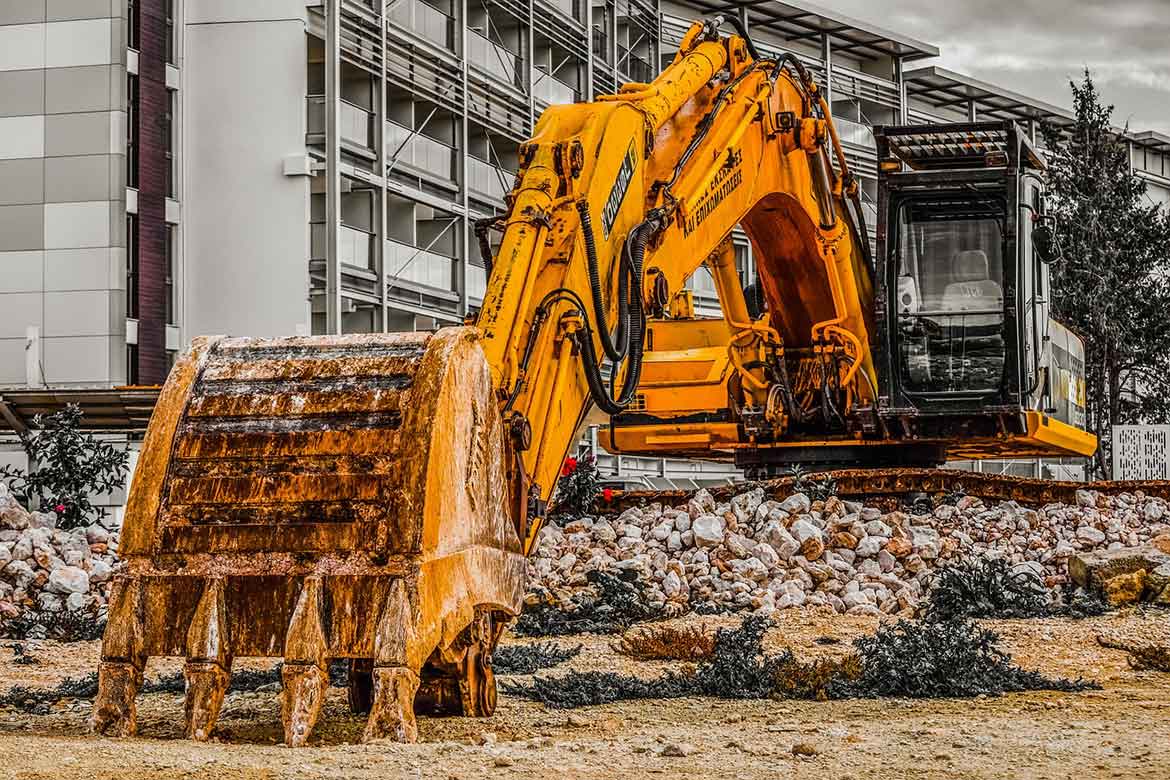When it comes to construction, most people focus on what’s visible — towering structures, intricate finishes, and detailed interiors. However, before a single brick is laid, before the first foundation is poured, there’s an essential phase that sets the stage for everything that follows: excavation. The demand for reliable, professional excavation services continues to rise as the construction industry evolves, requiring a precise blend of engineering, equipment, and expertise.
Excavation isn’t just about digging holes; it’s about preparing the land to support buildings, infrastructure, utilities, and landscaping. It’s a discipline that balances physical labor, science, and technology — all aimed at creating a safe, functional environment for future structures.
In this comprehensive article, we’ll explore what excavation entails, the different types of excavation work, the tools and techniques involved, and how to choose the right contractor for your project. Whether you’re building a home, developing commercial property, or installing underground systems, excavation plays a pivotal role in ensuring long-term success.
What Exactly Are Excavation Services?
At their core, excavation services involve the removal of soil, rock, and other materials from a designated site to prepare it for construction or landscaping. This process may include digging trenches, grading land, removing obstructions, and even reshaping terrain to meet project specifications.
Professional excavation contractors are trained to work with various types of terrain and equipment, while also adhering to safety standards and environmental regulations. The goal is not just to dig — it’s to shape the land so it can safely and efficiently support whatever structure or system is planned for the site.
Common tasks include:
- Site preparation and clearing
- Land grading and leveling
- Trenching for utilities and foundations
- Soil compaction and erosion control
- Excavation for basements, pools, and ponds
- Removal of debris, rocks, and vegetation
These tasks may vary depending on the nature of the project, the condition of the land, and the end goal of the construction team.
Types of Excavation Work
Excavation can be classified into several categories based on the purpose of the work, the materials being removed, and the tools or methods used. Understanding these categories helps clarify the scope of work involved in different construction scenarios.
1. Topsoil Excavation
This involves removing the upper layer of soil to eliminate organic materials like grass, roots, and other vegetation. It is typically the first step in preparing land for development.
2. Earth Excavation
Used when deeper layers of soil need to be removed for foundations, roads, or utility installations. This process requires heavier machinery and more detailed planning.
3. Rock Excavation
When solid rock or boulders are present, specialized tools and sometimes controlled blasting may be necessary. This is one of the most labor-intensive and costly forms of excavation.
4. Trench Excavation
This is used for laying utility lines, sewer systems, or drainage channels. Trenches need to be precise in both depth and alignment, as they affect the function of the systems they support.
5. Basement Excavation
For homes or buildings with underground levels, excavation must go deep enough to accommodate the basement structure, including waterproofing and drainage considerations.
6. Dredging and Channel Excavation
Common in marine or waterway projects, this involves removing sediment and debris from rivers, canals, or lakes to improve flow or navigation.
Every type of excavation must be approached with the right technique and equipment to ensure efficiency and safety.
Essential Equipment and Technology
Excavation has evolved from manual digging with shovels to highly mechanized processes using state-of-the-art machinery. Today’s excavation services rely on powerful equipment and advanced technology to handle various terrain and conditions.
Commonly used equipment includes:
- Excavators – Used for digging large volumes of earth and lifting heavy materials.
- Backhoes – Versatile machines useful for small to medium-scale excavation.
- Bulldozers – Ideal for pushing earth, leveling ground, and clearing debris.
- Skid Steer Loaders – Compact machines perfect for confined spaces.
- Dump Trucks – For hauling away removed soil, debris, or rock.
- Graders and Compactors – For smoothing and preparing surfaces post-excavation.
Modern enhancements:
- GPS and laser-guided systems – Increase precision and reduce human error.
- Drones – Help survey and monitor large sites quickly and safely.
- 3D modeling – Enables planning and simulation of excavation before physical work begins.
These technologies help streamline operations, improve accuracy, and reduce waste, making excavation more efficient and cost-effective than ever before.
The Importance of Planning and Permitting
Excavation isn’t something that can be approached carelessly. It requires thorough planning, risk assessment, and regulatory compliance. Failing to secure the proper permits or neglecting to assess environmental impact can lead to costly delays, fines, or even legal consequences.
Key planning considerations:
- Soil testing – Determines how the ground will react to excavation and construction.
- Utility mapping – Identifies underground gas, water, and electrical lines to avoid dangerous accidents.
- Environmental impact analysis – Ensures that the excavation won’t harm protected ecosystems or water supplies.
- Site access – Considers how machinery will be transported and operated on the property.
A qualified contractor offering excavation services will handle these planning elements as part of their package, ensuring that all necessary precautions and legal requirements are met.
Safety First: Minimizing Risk During Excavation
Excavation is among the most hazardous activities in the construction world. Risks include cave-ins, machinery accidents, underground utility strikes, and exposure to hazardous materials. Proper training, equipment maintenance, and site supervision are all critical.
Common safety practices:
- Regular trench inspections
- Shoring and shielding to prevent collapses
- Use of personal protective equipment (PPE)
- Clear signage and restricted zones
- Emergency response protocols
Reputable excavation companies prioritize safety for both their crew and the surrounding community. When hiring a contractor, it’s crucial to ask about their safety certifications, training programs, and insurance coverage.
How to Choose the Right Excavation Contractor
Selecting the right partner for excavation work can mean the difference between a smooth project and a costly disaster. Look for a contractor with a track record of professionalism, quality, and regulatory compliance.
What to look for:
- Experience – Especially with projects similar in scope to yours
- Licensing and insurance – Protects both you and the crew
- Modern equipment – Reduces downtime and increases accuracy
- Transparent pricing – Avoid contractors who offer vague estimates
- Client reviews and references – Speak with past clients or review case studies
- Project timelines – A trustworthy contractor will offer realistic timelines and stick to them
Avoid hiring based solely on the lowest bid. Instead, focus on value — which includes quality of work, reliability, and safety.
Cost Factors in Excavation Services
Excavation costs vary widely based on project size, location, terrain complexity, and the type of equipment required. Other variables include disposal fees for removed materials and the need for specialized labor.
Cost components may include:
- Mobilization and equipment setup
- Labor hours and crew size
- Type and amount of material being excavated
- Hauling and dumping fees
- Permits and inspections
- Unexpected challenges (e.g., hidden boulders, weather delays)
A professional company offering excavation services will provide a detailed quote and explain each part of the estimate so you can plan accordingly.
The Long-Term Value of Quality Excavation
While excavation may seem like just the beginning phase of a larger project, its impact is long-lasting. Improper or rushed excavation can lead to foundational instability, drainage problems, utility malfunctions, and delayed timelines. In contrast, professionally executed excavation ensures:
- Safe, stable foundation preparation
- Efficient drainage and erosion prevention
- Clear utility access and proper trenching
- Reduced future maintenance or structural issues
In short, investing in skilled excavation services early on prevents costly repairs and structural concerns down the line.
Final Thoughts
Excavation is far more than simply moving dirt — it’s a critical stage in any construction or landscaping project that demands precision, planning, and expertise. From residential home builds to large-scale developments, the quality of excavation sets the tone for everything that follows.
Whether you’re clearing a site, digging trenches, or reshaping the land, partnering with a reliable provider of excavation services ensures your project starts with a solid foundation — literally and figuratively.
Take the time to vet your contractor, understand the scope of work, and invest in proper planning. The ground you break today shapes the success you’ll build tomorrow.

















